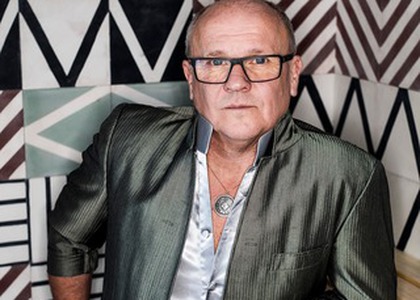> [Archived] Interviews

Interview with conductor Christian Lindberg
On Friday, November 11th, a new Radio National Orchestra concert will take place at the Radio Hall, featuring Johannes Brahms's Academic Festival Overture, Christian Lindberg's Mandrake in the Corner for trombone and orchestra, and P. I. Tchaikovsky's Fifth Symphony. More details about the event, given by our guest, maestro Christian Lindberg, in what follows.
Maestro Christian Lindberg, you will conduct a piece composed by you for trombone, an instrument you also play. Why have you chosen this piece, and why conducting instead of performing as soloist?
Actually I wasn't the one who made this decision. The initiative came from soloist and trombonist Alexandru Moraru. He greatly wanted us to perform together, so he reached out to me and I agreed to come and conduct. When I interpret this piece, I usually do it both as a soloist and a conductor, but it's also compelling to only conduct.
How would you describe in a few words Mandrake in the Corner?
I came up with the title later, after I had already written most of the piece. This was the second piece I ever composed, so I tried to follow my instincts and go where my inspiration was leading. The result was a type of music very similar to that from cartoons, which made me think about Mandrake the Magician, the predecessor of superheroes Spider-Man and Superman, who was popular in the 50s. The character in the comic books was dressed in a tailcoat and did all kinds of tricks, but in this piece I pictured him withdrawn, in a corner, because he's not the main character; his impact is from behind the scenes.
How's your collaboration with the orchestra and the soloist going?
The Orchestra is very talented and we've been working together a lot because we have a challenging program. In Tchaikovsky's Fifth Symphony I use the tempos written by the composer in the manuscript. I've noticed that many conductors don't usually do this, even though the instructions are clear. Therefore today you will hear a different interpretation than the one you're probably used to; this has been one of the challenges I've had to face.
We are also preparing Brahms's Academic Festival Overture, another challenging piece that we still need to do to work on. However, it will be a success because the orchestra is very talented.
Photo by Mats Backer
Translated by Denisa Stanciu,
University of Bucharest, Faculty of Foreign Languages and Literatures, MTTLC, year I
Corrected by Silvia Petrescu














